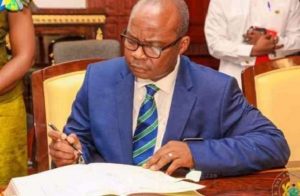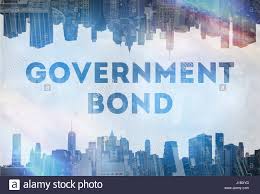
1. Ladies and Gentlemen, as you will all recall, we have earlier made the assessment that Ghana needs a strong and stable banking sector to drive the process of economic transformation. A weak banking sector means that access to credit will be limited while lending rates will continue to be high.
2. The Bank of Ghana is mandated by law to promote the safety, soundness, and stability of the financial system and to protect the interest of depositors. Since assuming office as Governor, the Bank of Ghana has been introducing a comprehensive set of reforms with the twin objectives of: (i) repairing and restructuring the financial sector to ensure banks are well capitalized and strong to support the fast growing and transforming Ghanaian economy; and (ii) ensuring that domestically-owned banks are further strengthened to
participate actively in the economic and social transformation agenda.
3. The Asset Quality Review (AQR) of banks conducted by the Bank of Ghana in 2015 and updated in 2016, identified a few indigenous banks as vulnerable with inadequate capital, high levels of non-performing loans, and weak corporate governance. In August 2017, the Bank closed two of those banks (UT Bank and Capital Bank) and approved the acquisition by GCB Bank of some of their assets and liabilities under a Purchase and Assumption Agreement. Other banks that were more recently licensed in 2016 and commenced operations in 2017 also began to show signs of distress due to existing vulnerabilities that were not disclosed at the time of their licensing. Efforts by these banks to extricate themselves from financial difficulty have not borne fruit. The situation has rather worsened for these banks.
4. uniBank and Royal Bank were identified during the AQR update in 2016 exercise to be significantly undercapitalized. The two banks subsequently submitted capital restoration plans to the Bank of Ghana. These plans however, yielded no success in returning the banks to solvency and compliance with prudential requirements. The Official Administrator appointed for uniBank in March 2018 has found that the bank is beyond rehabilitation.
Shareholders, related and connected parties had taken amounts totaling GH¢3.7 billion which were neither granted through the normal credit delivery process nor reported as part of the bank’s loan portfolio. In addition, amounts totaling GH¢1.6 billion had been granted to shareholders, related and connected parties in the form of loans and advances without due process and in breach of relevant provisions of Act 930. Altogether, shareholders, related and connected parties of uniBank had taken out an amount of GH¢5.3 billion, constituting 75 percent of total assets of the bank.
5. In the case of Royal Bank, an on-site examination conducted by the Bank of Ghana on 31st March, 2018 revealed a number of irregularities. Its non-performing loans constitute 78.8 percent of total loans granted, owing to poor credit risk and liquidity risk management controls. A number of the bank’s transactions totaling GH¢161.92 million were entered into with shareholders, related and connected parties, structured to circumvent single
obligor limits, conceal related party exposure limits, and overstate the capital position of the bank for the purpose of complying with the capital adequacy requirement.
6. In the case of Sovereign Bank Limited, as part of Bank of Ghana’s investigations into the failure of Capital Bank Limited (currently in receivership), it emerged that Sovereign Bank’s
licence was obtained by false pretences through the use of suspicious and non-existent capital. The bank is insolvent and unable to meet daily liquidity obligations falling due. Liquidity support granted so far to the bank amounts to GH¢21 million as at July 31, 2018. The bank has not been able to publish its audited accounts for December 2017, in violation of section 90 (2) of Act 930.
7. Beige Bank and Construction Bank were each granted provisional licences in 2016 and launched in 2017. Subsequent investigations conducted by the Bank of Ghana, revealed that similar to the case of Sovereign Bank, both banks obtained their banking licences under false pretences through the use of suspicious and non-existent capital, which has resulted in a situation where their reported capital is inaccessible to them for their operations. Consolidation of uniBank, Sovereign, Construction, Royal and Beige banks into a strong indigenous bank, known as Consolidated Bank Ghana Limited
8. Ladies and Gentlemen, to support government’s twin-objective of financial stability and strengthening indigenous banks, The Bank of Ghana is consolidating the good assets and liabilities of uniBank Ghana Limited, The Royal Bank Limited, The Beige Bank Limited, Sovereign Bank Limited and The Construction Bank Limited to become Consolidated Bank Ghana Limited with immediate effect. The Bank of Ghana has approved Mr. Daniel Addo as the new Chief Executive of the Consolidated Bank Ghana Limited. In addition, the government has appointed the following as the key management people to support in
transitioning into completely established new Consolidated Bank Ghana Limited. They are Mr. Simon Dornoo (Consolidated Bank Director in charge of uniBank), Mr. Alex
Dodoo (Consolidated Bank Director in charge of Royal Bank), Ms. Kesewa Brown (Consolidated Bank Director in charge of Construction Bank), Mr. Babatunde Ampah (Consolidated Bank Director in charge of Beige Bank), and Boulders Advisors
limited led by Mr. Reggie France as Advisor to the Consolidated Bank Ghana Limited. The Bank of Ghana has also appointed Mr. Nii Doodoo Amanor of KPMG as receiver in respect of the bad loan assets of the five banks, under section 123 of the Banks and Specialized- Deposit-Taking Institutions 2016 (Act 930).
9. The Government of Ghana has recapitalized the Consolidated Bank Ghana Limited to take on the selected good assets and all the liabilities of these five banks. The Government has also issued a bond of GH¢5.76 billion to cover the gap between the liabilities and good assets assumed by the Consolidated Bank. The Consolidated Bank Ghana Limited is expected to play a strategic role in the transformational agenda of the government.
10. This provision by the Government of Ghana is part of a fund set up by the Government of Ghana to help address all the legacy problems in the financial sector. 2018 Beyond – Improving the Supervisory and Regulatory Environment
11. Going forward, the BOG will continue to strengthen its regulatory and supervisory framework, and promote confidence in the financial system through the:
Introduction of the Basel Regulatory Capital Requirement
Directive:
Review of guidelines, directives and regulations to the industry in line with the new Banks and Specialized Deposit-taking Institutions Act, 2016 (Act 930).
Roll-out of the Basel II/III supervisory framework, and ensure implementation of IFRS 9 by banks;
Full implementation of the new minimum capital requirements for banks by end-December 2018 deadline;
Strictly enforce Fit and Proper Guidelines for Shareholders, Directors and Key Management Personnel of Banks and SDIs as well as other supervised Non-Bank Financial
Institutions;
Strengthen the capacity and resources of our Supervision Department to undertake a comprehensive review and improvement of all supervisory processes, and ensure
strong enforcement of prudential and conduct regulatory requirements;
Strengthen overall financial stability risk assessments and establish adequate measures to promote stability of the financial system;
Roll out implementation of the deposit insurance scheme established under the Ghana Deposit Protection Act, 2016 (Act 931),
Introduce Banking Sector Cyber and Information Security Guidelines to protect consumers and create a safer environment for online and e-payments products in line
with the government’s interoperability objective, and finally
Improve collaboration with other regulatory bodies to prevent regulatory arbitrage.
Conclusion
12. To conclude, let me assure clients of the five banks that their deposits are safe. Clients of these five banks can carry out their normal banking transactions at their respective banks which will now become branches of the Consolidated Bank
Ghana Limited. It is only the Directors/shareholders and the name of the Banks that have been changed. All staff of the affected banks will become staff of the Consolidated Bank. We do not expect any immediate job losses as a result of this consolidation.



